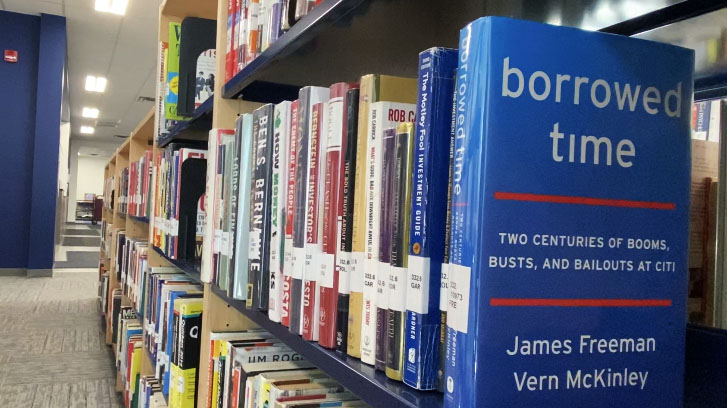Halifax’s fine-free library program prompts return of long overdue books
A book was returned to the library after three decades

caption
Returned books at a public libraryHalifax Public Libraries posted a picture on social media recently that made many chuckle: a book long overdue was returned.
“Our best friend is someone who will make the effort to return a book after 30 years,” the library posted on its Instagram account.
The library implemented a fine amnesty program in August when it reopened after the COVID-19 lockdown. It eliminated overdue fines, forgave existing fines and reset blocked library cards. A few months into the program, the library posted a picture of the book on Abraham Lincoln with a date due slip that showed it was borrowed last in February 1990.
The fine-free program has prompted many people to return “a lot of such items” borrowed several years ago, said Daniel Matto, an access support specialist at Halifax Public Libraries.
“There have been a lot of people who’ve told us they don’t have to worry about the fines,” he said in an interview with The Signal on Tuesday.
“We cleared everybody’s records.”
View this post on Instagram
A growing number of libraries across Canada have ditched late fees. Over the summer, Calgary, Edmonton, Brampton, Ont., and others got rid of fines in one form or another.
There is growing evidence that overdue fines do not encourage the return of material as intended, according to the Toronto Public Library board. The Saskatoon Public Library will also close the book on late fees as of Jan. 1, 2021, stating more than 100 other North American library systems have done away with fines and have reported increased numbers of users and more material in circulation.
Anne Bishop, an author in Nova Scotia, wondered if the implications of libraries going fine-free could be two-sided.
“I can certainly see that it might encourage some people to borrow books more if they were never faced with a financial fine,” said Bishop, who has written fiction on social justice issues. “On the other hand, it might encourage people to say, ‘I’ll keep that for another few weeks and forget all about it.’”
Matto said the overall reception of the fine-free program at Halifax Public Libraries has been very positive. He said the program is all about the readers coming through the doors again and feeling comfortable about being in a library. He added although online reading has picked up pace, the program will encourage more physical book checkouts and returns.
According to the library’s statistics emailed by Matto, the physical items checked out grew by two per cent from August to September and by 10 per cent from September to October.
In 2019, Halifax Public Libraries collected just over $193,000 in overdue fines and $25,000 in replacement fees such as lost items, Matto said. The revenue from the fines is a “minuscule percentage of the budget” in comparison to the number of readers who benefitted from the program, he added.
“We were able to absorb that cost because being able to remove the barriers for people is more important,” Matto said. “You can’t put a price on that.”

